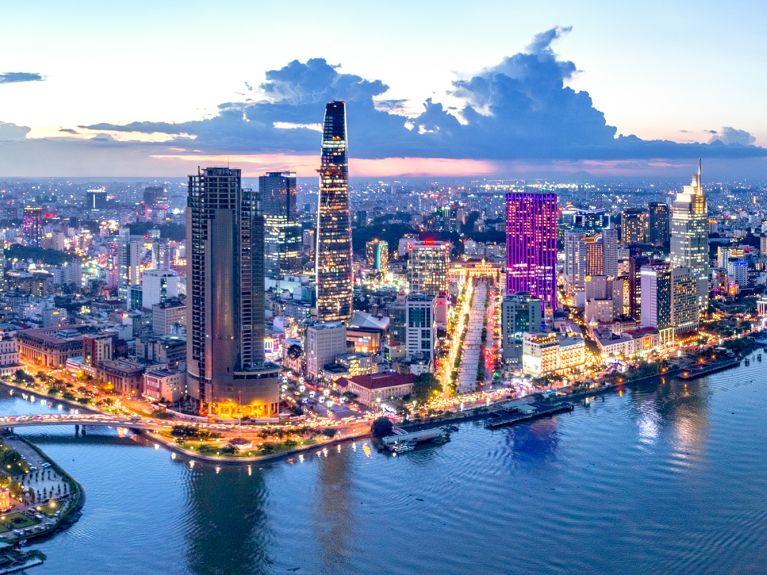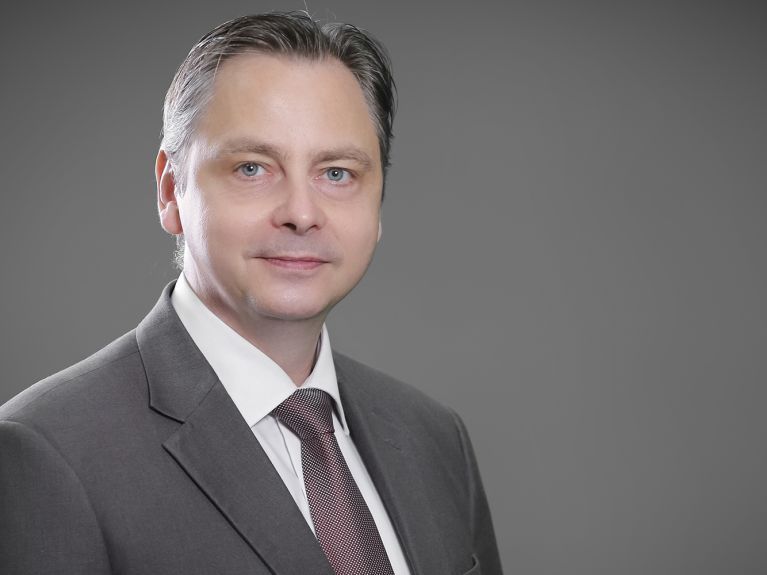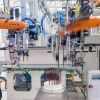Vietnam now
Marko Walde, the delegate of German Industry and Commerce in Vietnam, explains why this Southeast Asian country is the ideal business partner right now.

Vietnam has experienced rapid economic development and social change in the past 30 years. Formerly an emerging economy, it is now a so-called “middle income country” characterised by unrivalled dynamism with its 95 million inhabitants and young population structure. Thanks in particular to Germany’s “new” states (which previously comprised East Germany), Vietnam and Germany have close historical ties that are unique in the region. 120,000 Vietnamese live permanently in Germany and a good 100,000 others were educated and trained in Germany but live in Vietnam, where many work in key positions in business, government or politics.

Even the intercultural differences that must always be taken into account in Asia are favourable from a German perspective. For one thing, Vietnam serves as a cultural bridge between China and the more Indian-influenced Southeast Asia. And for another, the Vietnamese understanding of structure and project management will be familiar to Germans. German-Vietnamese economic relations have therefore developed successfully in recent years. The percentage annual increase in trade has been in the double-digit range over the past five years. Growth rates in key sectors have been impressive, with exports of German machines and equipment soaring for example by 44 percent in 2018. Totalling a good two billion euros, German investments in Vietnam are also relatively strong, though there is still considerable potential in this area.
Vietnam has come through the corona crisis comparatively well.
The Covid-19 pandemic has done little to change these positive developments. Vietnam has come through the crisis comparatively well, has kept infection rates at a very low rate by following a “low-cost” approach, and has suffered only few deaths. This was achieved by strictly adhering to simple hygiene measures, i.e. wearing face coverings, regularly disinfecting hands and complying with social distancing rules. Vietnam is one of the few countries that also expect to see economic growth in 2020, with trade figures hardly down on last year at all.
For years we have been seeing a trend that we call “China+1”.
German companies are still very much interested in Vietnam as a location for business, according to the German Chamber of Commerce Abroad (AHK). It is particularly during periods of crisis, such as the current corona situation or the trade dispute between the USA and China, that it becomes clear how important it is for companies to actively manage acute and potential risks and to diversify accordingly. In this respect we have been seeing a trend for some years now that we describe as “China+1”. In other words, German companies that operate only one branch in Asia (generally in China) are now getting themselves ready to develop a second branch (outside China). ASEAN is the preferred region here, with Vietnam often being the country chosen within ASEAN. Some firms are still hesitant to set up a branch in Vietnam because the local component supplier industry is relatively poorly developed as yet. If Vietnam succeeds in improving the situation and overcoming the infrastructural challenges that still exist in some places, this would give the country some additional major advantages as a business location.
“The free trade agreement between the EU and Vietnam has been in force since 1 August.
Vietnam’s economic success is also based on its strong commitment to unilateral free trade. Vietnam is one of ten members of the ASEAN Economic Community (AEC) that upholds basic economic freedoms comparable to those in the EU. Of these ten countries, only four – Vietnam and three others – are members of the Trans-Pacific Partnership (TPP-11), and only two of these states, Singapore and Vietnam, have signed a free trade agreement (FTA) with the EU. The FTA between the EU and Vietnam (EVFTA) came into force on 1.8.2020.
Besides economic issues, regulations that benefit employees and climate protection were also agreed. The EVFTA envisages the gradual abolition of all tariffs and other import duties and the harmonisation of technical standards. Thanks to the agreement, foreign companies will be guaranteed equal access for the first time to the public procurement market, for example in the area of medical equipment for state healthcare facilities. Since Germany is Vietnam’s most important trade partner by far within Europe, we are confident that German firms in particular will profit from the agreement. And the same applies to the expected investments.
An investment protection agreement came into effect at the same time as the EVFTA. Along with Singapore, Vietnam already has the lowest barriers to market entry for foreign firms. They can set up a wholly-owned Vietnamese subsidiary, for example. The agreements now serve to further increase the security of investments, which is especially important for small and medium-sized enterprises. In short, Vietnam offers considerable opportunities and potential for German business, both now and in the near future. As with all foreign activities, proper preparation of investments is the key to success.


